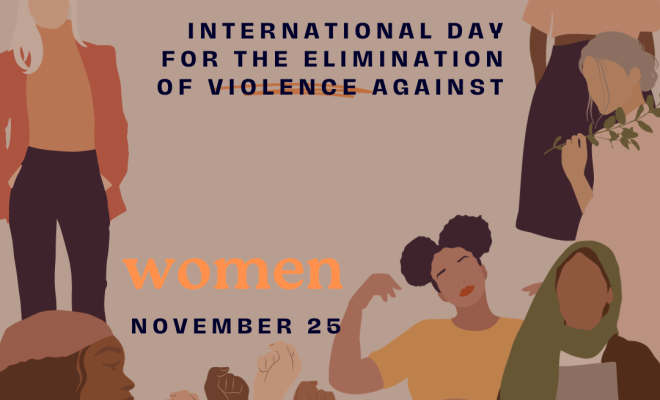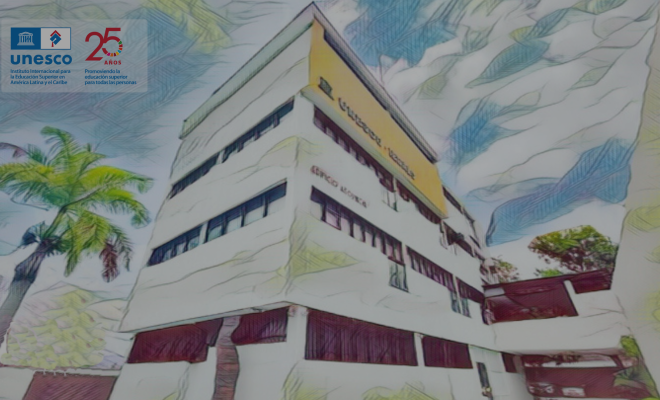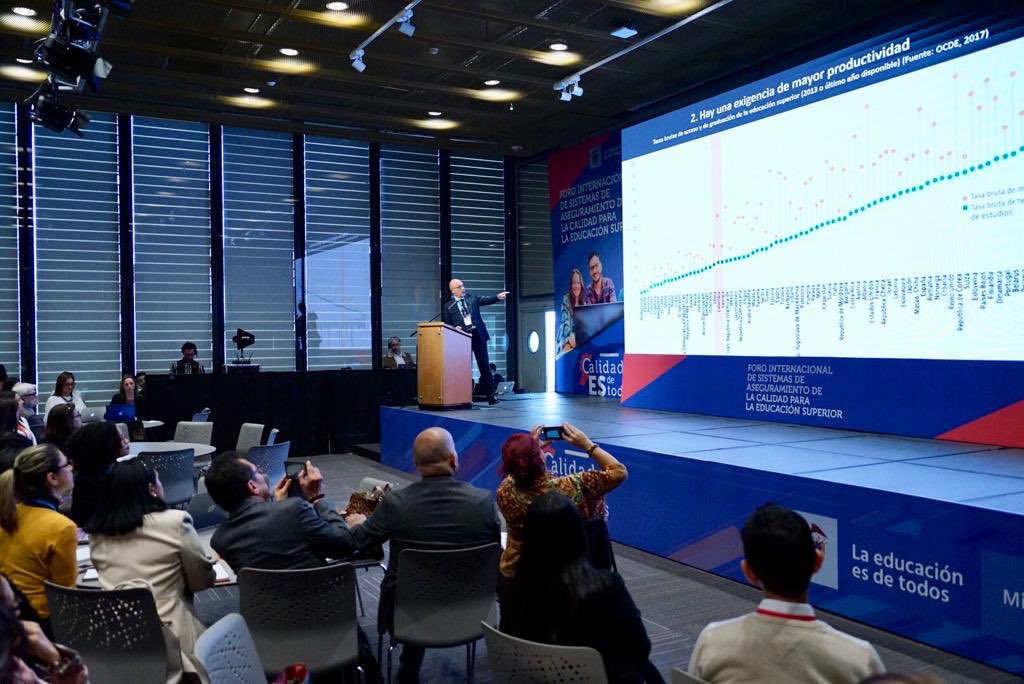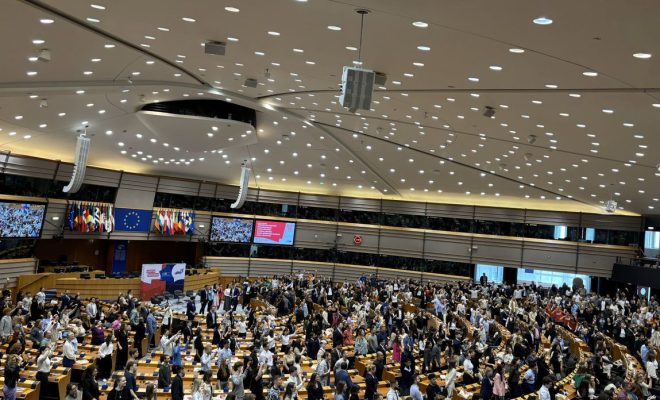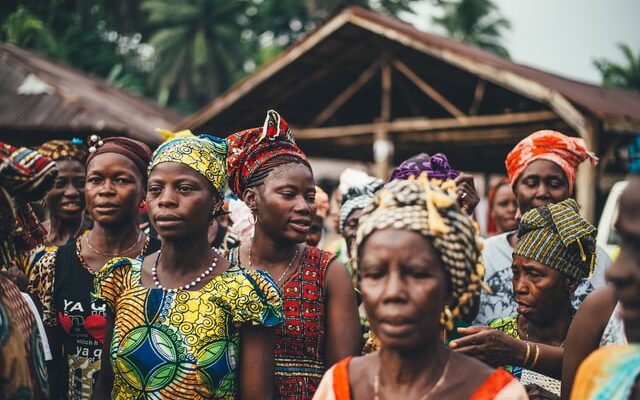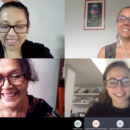Benefits of a rights-based approach to higher education

The all-day event held on 17 November, supported by University World News, is the largest collaborative occasion focusing on equitable education access and success in the world.
Specifically, the online conference, entitled “Equity in higher education: Building the global knowledge base”, saw the UNESCO International Institute for Higher Education in Latin America and the Caribbean (IESALC) and panellists engage in a debate about access and the importance of a rights-based approach.
Dr Abdoulaye Salifou, chief of UNESCO’s Education Section in Addis Abba, Ethiopia, gave context to the meeting by quoting Article 26 of the 1948 Universal Declaration of Human Rights, which states that equitable quality education and lifelong opportunities are rights for all.
The meaning of a rights-based approach
Salifou said that in Africa the World Bank has historically placed emphasis on primary and secondary education and has not provided the same focus or funds for higher education. Salifou stressed that a rights-based approach would see higher education receive greater status. “We need to recognise everybody’s potential, reduce inequality, and be inclusive,” he said.
Elizabeth Bernal Gamboa, professor at the National University of Colombia, added that when we take a rights-based approach we are forced to think differently. The COVID-19 pandemic, for example, affected people in education in different ways, with some moving online, while others were forced to drop out.
“The focus should not only be on access issues,” she argued, “but on retention and academic success.”
“Higher education provides opportunities for people to get skills and contribute positively to the economy and community,” said Mirriam Chiyaba, chief executive officer of the Zambia Qualifications Authority. “If we do not take a rights-based approach, we deny people’s contribution to society.”
Dr Rosana Heringer, associate professor at the Federal University of Rio de Janeiro in Brazil and board member of the Latin American Campaign for the Right to Education (CLADE-Brasil), explained that the pandemic had exacerbated inequalities in access to higher education, and that a lack of government investment meant low-income students and minorities were now less likely to enjoy these opportunities.
“In Mexico, we have also lost a lot of government funding,” said Jhasua Medina, vice-president of the Federation of University Students, University of Guadalajara.
“Our university has high enrolment and is one of the best in the country, but students have to regularly campaign to address basic inequalities, such as how to get people to schools,” he said. “There is lot of demand for higher education in Mexico, but if we want access for everyone, we need finance.”
“Access is a critical part of the puzzle, but academic success and post-university training are also part of a rights-based approach,” added Dr Emma Sabzalieva, head of research and foresight at UNESCO IESALC, who moderated the event.
‘Hunger trumps education’
Sabzalieva asked how people can best campaign for higher education, which generated an array of responses.
Heringer and Medina both emphasised the need for more public resources, with Heringer saying that civil society organisations should lobby more strongly for it.
She said that in Brazil “students frequently don’t apply for higher education because they don’t have the information, so if we are going to encourage those from indigenous populations and poorer neighbourhoods to apply, we need to fund information campaigns in those communities”.
“They need financial support but also a sense of belonging,” she continued. “Higher education is important for them to be able to fight for their rights.”
Medina said that on the outskirts of Guadalajara in Mexico the economic situation of many families means that even access to primary education is not guaranteed.
“Students often participate in illegal activities just to provide for their families, or they emigrate to the US. Their financial situation stops them finishing their training, because their priority is to find food and shelter.”
“Economies are struggling, and there are competing demands, so it is a challenge to emphasise education as a right,” added Chiyaba. “When the government has to meet basic needs, they put that before education.”
Salifou introduced another perspective by emphasising the importance of lifelong learning and, in particular, the role of technical and vocational education and training (TVET) institutions. We shouldn’t just focus on the transition from primary to secondary school to university, he argued, but on education throughout life.
“We have high youth unemployment, and TVET students also need to access technical higher education,” he said.
Competing challenges
“In Africa there are many competing challenges, including education, hunger and [lack of] information and communications technology,” Salifou continued. “That is why we need to support UNESCO to put more emphasis on the right to higher education.”
In terms of innovation, Chiyaba highlighted the fact that although many Zambian universities are only just breaking even, they are tailored towards the less advantaged. They do this by offering scholarships to supplement whatever other state grants are available.
In Colombia, on the other hand, Bernal Gamboa highlighted the benefit of involving a broad range of stakeholders to enable access for disadvantaged groups.
“We are very fortunate to have a special project for people with disabilities,” she said. “We work with organisations that support students throughout their whole university career, and focus on finding new approaches each day.”
One of the biggest challenges in Colombia, however, is the need for continuity of funding when government incumbents change. Bernal Gamboa explained that it is frustrating when important projects are suddenly cut, and “sometimes the outcome is not even close to what was hoped for”.
Corruption is another problem. “We need managers who are driven by rights and the desire to expand access,” she said.
“Here in Guadalajara [in Mexico] we are sometimes faced with authoritarian governments, which makes it impossible to talk about bigger infrastructure to improve access,” said Medina. “On the other hand, some universities fear student mobilisation. It should be a priority to have students involved in these kinds of discussions, just like we are having today.”
Heringer agreed that universities are sometimes afraid of student participation. “We also need forums inside universities so that students can contribute to the curriculum,” she said.
“In the last 20 years in Brazil, indigenous students, for example, have changed the content of university courses. They have brought a different perspective and shown that there is no single understanding of issues.”
Universities ‘designed for the elite’
The conference heard that in Brazil 75% of higher education provision was delivered by the private sector, compared to around 50% in countries like Colombia and Chile.
The accreditation system in the private sector is often geared towards ‘high quality’ students, but institutions must also show they are fully committed to equality. To do this, it is necessary to develop measurement tools, even though in some countries it is difficult to collect this data.
“In Latin America, many people are migrants, victims of gender-based violence or armed conflict, and the private sector needs to help us develop markers to measure access from these groups,” said Bernal Gamboa.
Chiyaba, however, stressed that strong partnerships are needed with private education institutions to produce a ‘win-win’ situation. “Governments need to create an enabling environment for the private sector to thrive,” she said.
“Our universities need to take more responsibility for broadening access because in most of our countries they were designed for the elite,” said Heringer.
“Access to higher education should be seen as a right, and not just a privilege for the few,” concluded Chiyaba.
Author: Paul Rigg
RELATED ITEMS
